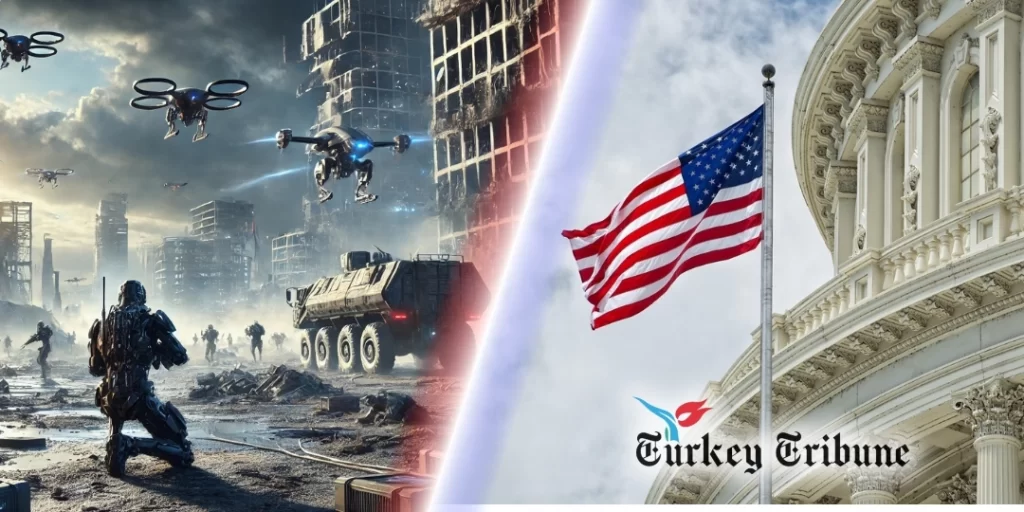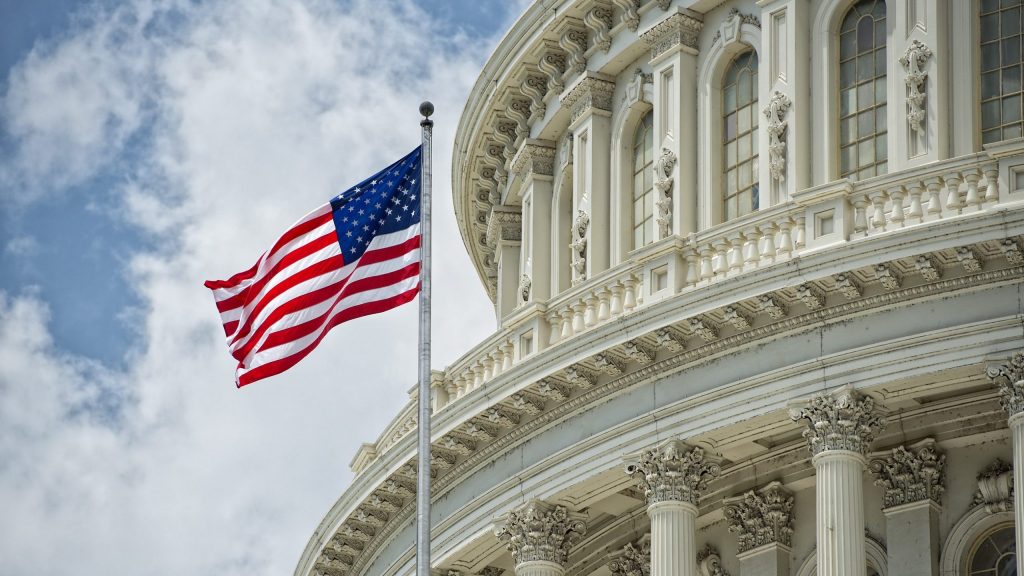(This article was written in English. Your browser might be translating it into your langauge. To read the original version, please select English.)
I won’t shy away from saying it, even if it sounds radical: World War III already happened through biological warfare, specifically the pandemic, without using nuclear weapons. And those set to lead after November 2024 are coming with a mission – they’re coming to escalate the ongoing political upheavals and go to war!

In the first two world wars, the battle lines were clear, and reparations were paid. In contrast, World War III played out like a “whodunit” mystery. The public never learned who orchestrated the attacks. Revealing the perpetrators would require the guilty to admit fault, which, as a grave crime against humanity, would mean massive reparations. This accountability could even result in confiscation of their assets or trigger another major conflict – World War IV.
The great confrontation seems set to continue through biological and cyber attacks.
Advanced nations invest in the future, valuing scenarios about what lies ahead. Western think tanks exist for precisely this reason, under the guidance of strategists. Whether accurate or off the mark, these groups stay committed to future scenarios. In this article, while analyzing the future of the United States, I will first share some predictions I have made in recent years. Then, I will present forecasts on what might happen if Donald Trump wins the upcoming election.
Recomended Article: Banality of Banalness
RECENT EVENTS
In August 2018, I stated on a TV program, “World War III has begun!” The hosts asked about the parties and battlefronts. I explained that the concept of “battlefronts” had changed since the first two world wars, reflecting new warfare possibilities.
Here’s what I observed: At that time, Trump’s backers and strategists saw cooperation between Europe and China as a direct threat to the United States. They were furious at those supporting the new world bank in China and transferring technology to Asia. Eventually, they declared war, and we were among the first affected! The Turkish lira quickly lost value, inflation soared, and economies that temporarily boomed through borrowing from global capital approached the brink of collapse.
By 2019, as global markets strained, we saw an unexpected outcome at year-end: a biological assault devastated globalization.
In March 2020, the pandemic was declared, halting the world. At that time, the U.S. economy was strong, with only eight months until the presidential election. For the first time in decades, unemployment had fallen below 4%, making Trump’s reelection almost certain. The pandemic devastated the American economy; unemployment shot up from 4% to 17%, with 50 million Americans filing for unemployment benefits. Such devastation had only been seen in global conflicts.
The November 2020 presidential election was highly unusual, with results contested. Trump claimed victory, yet Biden took office. There was no handover ceremony, and radical Republicans marching to the capital stormed the Capitol; blood was shed.
In January 2021, I published a scenario on social media predicting that the U.S. president would survive an assassination attempt but would later resign. Although the assassination attempt in July 2024 targeted candidate Trump, the incident ultimately led President Biden to resign. I had also predicted radical change in Iran and an intensification of the cyber (Big Data) competition. Iran’s president was assassinated, and a figure emerged to represent both Turkish and Persian communities. Cyber warfare signals have also appeared. Predictions that have not yet come true will be covered in another piece.
We may not know the future precisely, but we must analyze where events come from and where they may lead. It is our duty to write and communicate what we see without alarming people. While history examines the past, international relations seeks to forecast the future. As a researcher experienced in both fields, who has studied various state archives and global think tanks, I share my insights. Great power only lasts as long as a nation can balance the line between past and future. We, too, should shift away from trivial issues and ponder future scenarios, as the winds of change seek to reshape what we know.
After outlining our scenarios, let’s focus on the United States. We read the world’s future by analyzing the debates surrounding this global power.
POLITICAL FUTURE SCENARIOS
The Economist highlighted Turkey’s 2023 presidential election as “the most important election in the world,” showing its significance beyond Turkey. For the U.S., the upcoming November election holds even greater weight. If Trump, backed by Republican lobbies, wins, we can expect a fierce internal struggle within American institutions, with repercussions worldwide.
Since the Trump era, the U.S. Supreme Court has leaned Republican, but the Department of Justice, CIA, and FBI, mostly controlled by Democrats, oppose Trump. Pentagon positions filled by conservative cadres under Trump aim to turn the Department of Defense, Joint Chiefs of Staff, and military intelligence into the unbreakable strongholds of the Christian-Zionist-Republican-Conservative faction after the election.
U.S. Middle East policy might also shift significantly. In 2017, following Trump’s visits to Saudi Arabia and Israel, a crisis with Qatar erupted. The Biden administration eased Qatar’s concerns and pressured Israel, favoring a Liberal Zionist stance opposed to Netanyahu’s Conservative-Zionist coalition. The October 7 Event, occurring under Biden’s watch, will likely remain shrouded in mystery for years to come.
On one TV program, I discussed the significance of a CIA official tasked with presenting intelligence files to President Biden sharing a pro-Palestinian post on social media amid U.S. diplomacy between Mossad and Hamas. Few in Turkey discussed this, where most assume the U.S. stands as Israel’s staunch ally. Few examine the struggles within their alliance and the mechanics of these dealings. Should Trump win, the Globalist-Democrat wing of the U.S. may once again try to exploit the Palestine issue. Meanwhile, some will persist in thinking that “even the infidels are more sensitive to the Palestinian cause than us!”

INTERFAITH DIALOGUE MAY REGAIN MOMENTUM
Interfaith dialogue activities and grand energy projects between Israel, UAE, and Saudi Arabia (in opposition to China) may come back to the agenda through the Abraham Accords. Recently, China has sought a geopolitical role in the Gulf, attempting to bring Iran and the Saudis together. The Trump administration, however, aims to divide Saudi Arabia from both Iran and China. If MBS, allied with Trump’s lobbies, remains in power, he may strengthen his position and ascend to the throne. Globalists in the CIA will not let the Trump-MBS (petrodollar) axis rest. Otherwise, Russia (Putin) will also secure a position within this axis, amplifying Russian influence in Europe.
Recomended Article: Exposing the Western Double Standards and Media Games
SOCIO-ECONOMIC FUTURE
Since the U.S. took over global leadership from Britain, it has also guarded global capital. After World War II, U.S.-led efforts allowed oil to become the cornerstone of the new global order. In recent years, however, this system has stalled, and in the digital age, we see new paradigms for money, production, consumer behavior, and shopping patterns.
Massive migration waves now help stabilize inflation in industrialized nations but fuel nationalist sentiments. Many former leftists now join right-wing nationalist movements, reshaping ideologies and identities.
For Trump’s supporters, “Inclusive Capitalism” appears to be a socialist project targeting real capitalism. Globalists, in their view, want to dismantle the competitive free-market capitalism that made the U.S. great and establish a multipolar, leaderless world order.
In this battle, will the U.S. emerge as the power controlling “Big Money” (global capital), “Big Data” (big tech companies), and “Big Oil” (big oil companies), or will these forces control the U.S.?
A STRUGGLE BETWEEN THE BLACK GOLD AND YELLOW GOLD LOBBIES
Answering this question is complex. Oil, a pillar of American superpower status, lies largely with Conservative-Republicans; technology leans toward Liberal-Democrats, while capital intertwines with both. In simple terms, the U.S. is witnessing a struggle between the “black gold” and “yellow gold” lobbies.
From the Conservative perspective, if the Liberal-Democrats win and strengthen their control, globalists linked to the England-Europe axis could dismantle conservative American society. They believe globalists seek to reshape the youth through digital money and digital entertainment policies, creating a community devoid of faith, identity, and values.
WORLD WAR: IS IT THE THIRD OR FOURTH?
Since the 1950s, whenever global tensions rise, headlines ask, “Will there be a Third World War?” Following the pandemic, the British general staff and Trump repeatedly warned of the risk of global conflict. Even Turkey’s Foreign Minister raised this issue after Putin’s statements.
I do not shy away from saying it: World War III already happened through the pandemic. Certain committees investigated the origins of the virus through the UN, but most countries dismissed these reports. This topic will likely reemerge in the future.
In World War III, as in a mystery novel, the perpetrators stayed hidden. Revealing them would force them to admit guilt and face massive reparations, potentially leading to confiscation of their wealth or even World War IV. Let us remember the gold lobbies we mentioned earlier! Nationalists and globalists eye each other’s wealth more than ever.
A nuclear conflict might seem unlikely, yet biological and cyber confrontations appear set to continue. We must prepare for new-generation warfare. Biological and cyber defense will serve as the backbone of future national security policies
As the responsible parties behind the pandemic remain unidentified or unpunished, massive crises arise in global markets. Large waves of migration head toward countries seeking cheap labor. The transition to an AI-centered society and debates over energy and the environment shake the established political world order. Those who will take charge after November 2024 are likely to intensify this turmoil. They seem to be coming with a mission – to wage war, not to settle disputes.
Dr. Cafer Talha Şeker
Recomended Articles:
















 Afrikaans
Afrikaans Shqip
Shqip አማርኛ
አማርኛ العربية
العربية Հայերեն
Հայերեն Azərbaycan dili
Azərbaycan dili Euskara
Euskara Беларуская мова
Беларуская мова বাংলা
বাংলা Bosanski
Bosanski Български
Български Català
Català Cebuano
Cebuano Chichewa
Chichewa 简体中文
简体中文 繁體中文
繁體中文 Corsu
Corsu Hrvatski
Hrvatski Čeština
Čeština Dansk
Dansk Nederlands
Nederlands English
English Esperanto
Esperanto Eesti
Eesti Filipino
Filipino Suomi
Suomi Français
Français Frysk
Frysk Galego
Galego ქართული
ქართული Deutsch
Deutsch Ελληνικά
Ελληνικά ગુજરાતી
ગુજરાતી Kreyol ayisyen
Kreyol ayisyen Harshen Hausa
Harshen Hausa Ōlelo Hawaiʻi
Ōlelo Hawaiʻi עִבְרִית
עִבְרִית हिन्दी
हिन्दी Hmong
Hmong Magyar
Magyar Íslenska
Íslenska Igbo
Igbo Bahasa Indonesia
Bahasa Indonesia Gaeilge
Gaeilge Italiano
Italiano 日本語
日本語 Basa Jawa
Basa Jawa ಕನ್ನಡ
ಕನ್ನಡ Қазақ тілі
Қазақ тілі ភាសាខ្មែរ
ភាសាខ្មែរ 한국어
한국어 كوردی
كوردی Кыргызча
Кыргызча ພາສາລາວ
ພາສາລາວ Latin
Latin Latviešu valoda
Latviešu valoda Lietuvių kalba
Lietuvių kalba Lëtzebuergesch
Lëtzebuergesch Македонски јазик
Македонски јазик Malagasy
Malagasy Bahasa Melayu
Bahasa Melayu മലയാളം
മലയാളം Maltese
Maltese Te Reo Māori
Te Reo Māori मराठी
मराठी Монгол
Монгол ဗမာစာ
ဗမာစာ नेपाली
नेपाली Norsk bokmål
Norsk bokmål پښتو
پښتو فارسی
فارسی Polski
Polski Português
Português ਪੰਜਾਬੀ
ਪੰਜਾਬੀ Română
Română Русский
Русский Samoan
Samoan Gàidhlig
Gàidhlig Српски језик
Српски језик Sesotho
Sesotho Shona
Shona سنڌي
سنڌي සිංහල
සිංහල Slovenčina
Slovenčina Slovenščina
Slovenščina Afsoomaali
Afsoomaali Español
Español Basa Sunda
Basa Sunda Kiswahili
Kiswahili Svenska
Svenska Тоҷикӣ
Тоҷикӣ தமிழ்
தமிழ் తెలుగు
తెలుగు ไทย
ไทย Українська
Українська اردو
اردو O‘zbekcha
O‘zbekcha Tiếng Việt
Tiếng Việt Cymraeg
Cymraeg isiXhosa
isiXhosa יידיש
יידיש Yorùbá
Yorùbá Zulu
Zulu